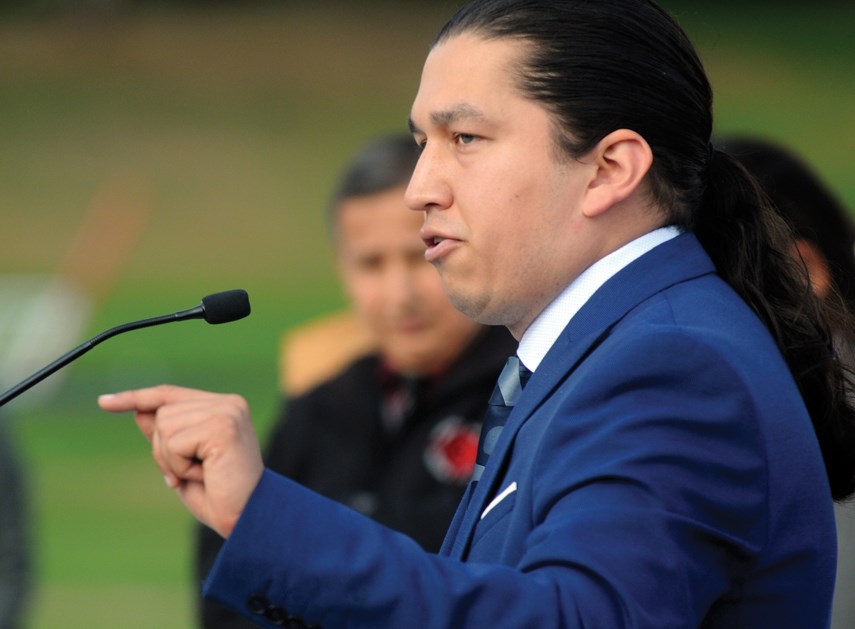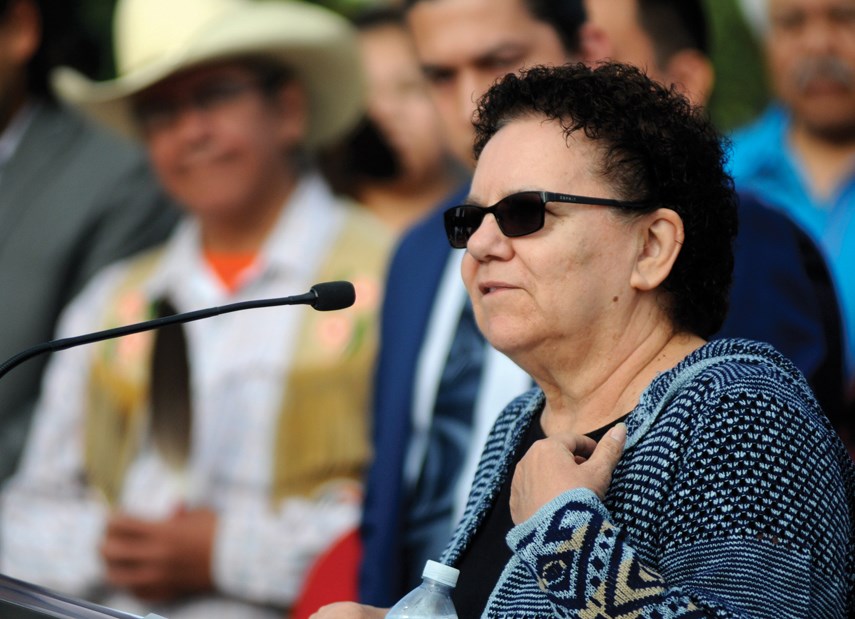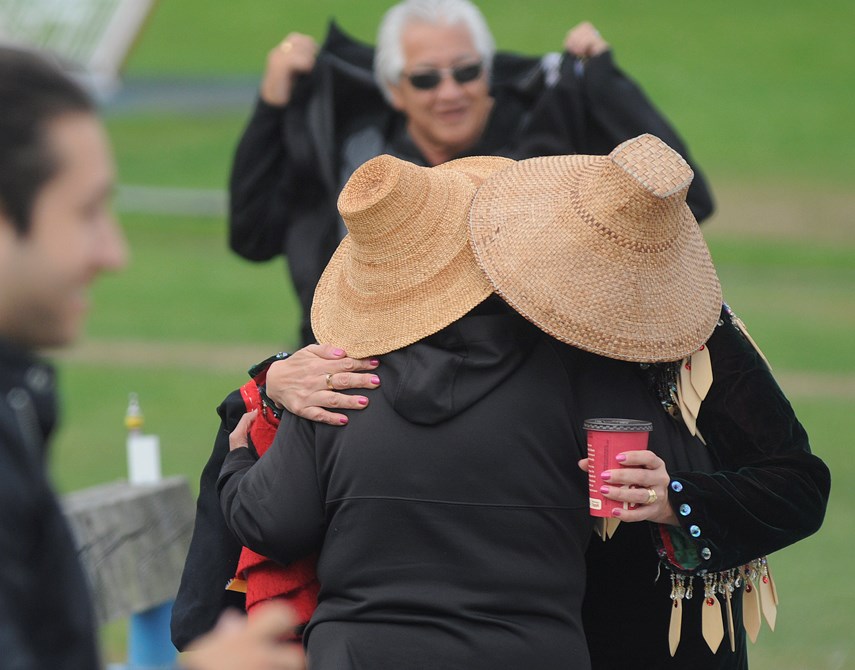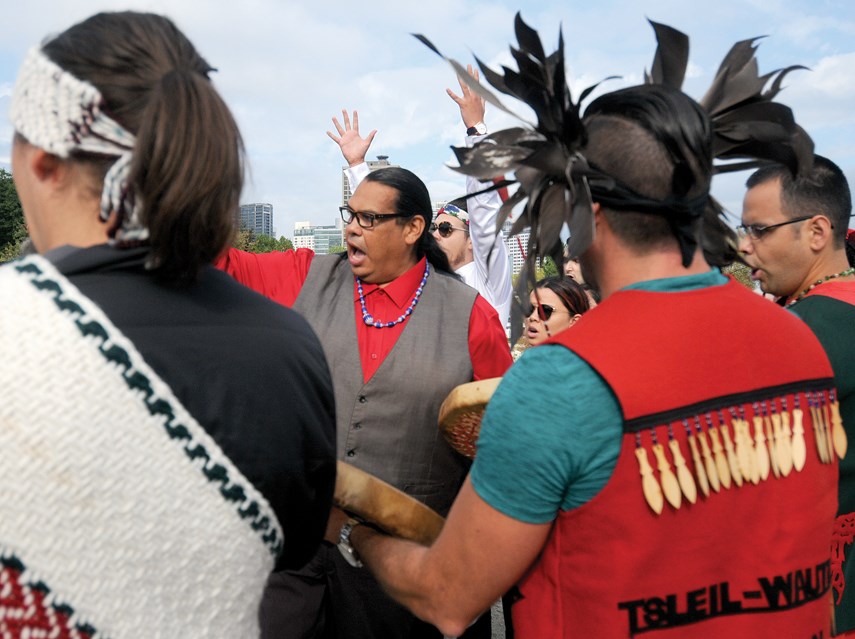The federal court of appeal has delivered a massive victory to the Tsleil-Waututh and Squamish First Nations in their challenge of the Trans Mountain pipeline expansion, ruling Thursday that the federal government failed to adequately consult with them on the Trans Mountain pipeline expansion.
In a unanimous decision by a panel of three judges, the court found the National Energy Board's review of the project was so flawed that the federal government could not rely on it as a basis for its decision to approve the expansion.
There was a jubilant atmosphere when the First Nations at the centre of the case gathered on the shore of Burrard Inlet in Vancouver to formally respond to the ruling Thursday morning.
“We are winning,” declared Rueben George, manager of the Tsleil-Waututh Sacred Trust Initiative. “At the beginning, I remember people saying this is a David and Goliath fight. And it’s true. The spirit of the people that I feel behind me was too big for Kinder Morgan. It was too big.”
The court found that the federal review was also flawed in that it excluded the project's impact on marine shipping and did not assess the potential impact of increased tanker traffic on the southern resident killer whale population.
The court decision means that federal approvals of the pipeline project are essentially quashed, however, until the issues of consulting First Nations are adequately addressed. In its written ruling, justices of the federal court noted that means more than simply allowing Indigenous peoples “to blow off steam” before the Crown proceeds to do what it always intended to do.
“The meeting notes show little or no meaningful responses from the Crown consultation team to the concerns of the indigenous applicants. Instead, too often Canada’s response was to acknowledge the concerns and to provide assurance the concerns would be communicated to the decision-makers,” the court noted.
Speaking for the Squamish Nation, elected council member Khelsilem welcomed the decision.

“I can’t begin any words to express our feelings of elation and happiness and joy at what the courts have found around the arguments the Squamish Nation made from Day 1: The process was flawed, that the consultation was inadequate, that the Trudeau government did not respect our rights as a people,” he said. “The courts agreed with us on every step of that argument.”
Khelsilem said thanks were owed to the Squamish ancestors, elders, past leaders, lawyers and people who stood in solidarity throughout the process.
And, Khelsilem added, the ruling should send a message to the federal government.
“They must stop picking fights with Indigenous people. We will win. We won today. We will win again,” he said to applause. “The project is stopped in its tracks right now. They must behave honourably. They must go back to the drawing board. This whole process must be restarted.”
Tsleil-Waututh Nation Chief Maureen Thomas took a more peacemaking tone, saying numerous times she did not see the dispute as a fight but rather a critical step towards bringing people together to the cause of the environment for future generations.

“In 2015, I stood across the inlet at Cates Park and I said it was a very sad day because we had to go to court to fight Canada. I want to remind and let everybody know it’s not our nature to fight. We don’t want to fight you. We don’t want to fight Canada. Today, the court came back in a favourable decision for us and we all have to step back and think: ‘What does this really mean for Canada?’” she said. “I really believe today is a turning point for all of us and I don’t want to just say the Indigenous people. Today is a day for all of us to come together to build a strong relationship, to work together, to find a way to ensure your children, my children have a world that is going to sustain them in the future.”
Trans Mountain released a statement in response to the ruling saying the company would be suspending construction related activities while it reviews the decision and assesses its next steps.
“We remain committed to building this project in consideration of communities and the environment, with meaningful consultation with Indigenous peoples and for the benefit of Canadians,” Kinder Morgan Canada president Ian Anderson said in a statement.
Despite the celebratory tone of the event, George acknowledged that the pipeline question would most likely be before the Supreme Court of Canada.
“Our chief was asked … if we need to go to the Supreme Court. She didn’t skip a heartbeat and said ‘We’re ready. If it comes to that.’ I believe the other nations up here are ready for the same thing. This is a victory but we’re ready to push right across the finish line. We always said we’d do what it takes to win.”
The federal government announced plans this spring to buy the pipeline and expansion project for $4.5 billion from Kinder Morgan. Within minutes of the court ruling, shareholders voted almost unanimously to go ahead with the deal.
In a press conference in Toronto, federal finance Minister Bill Morneau told reporters that his government had “inherited a flawed environmental review process” but that purchasing the pipeline and now-hobbled expansion plans was the right thing to do.
The expansion would triple the capacity of the Trans Mountain pipeline from near Edmonton to Burnaby, B.C., to 890,000 barrels a day. It would also increase the number of tankers in Burrard Inlet seven-fold.
- with files from Canadian Press




